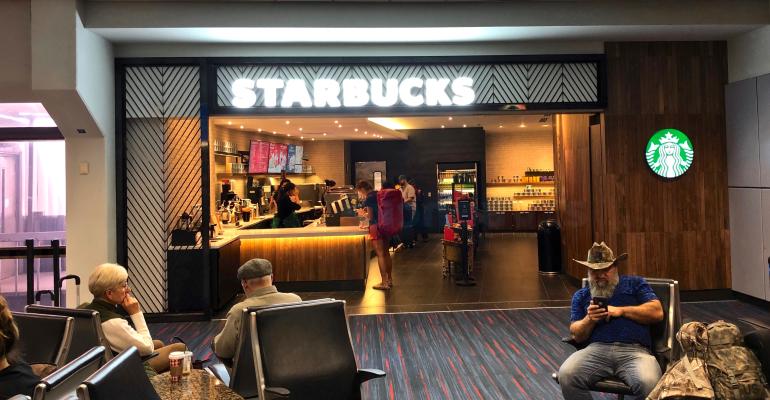Starbucks just released the results of an independent third-party assessment of the restaurant company’s collective bargaining commitments, as previously promised. The audit found that the company could have handled unionization better in multiple ways but, “found no evidence of an anti-union playbook,” aka – no (purposeful) union-busting.
“The assessment was direct and clear that while Starbucks has had no intention to deviate from the principles of freedom of association and the right to collective bargaining, there are things the company can, and should, do to improve its stated commitments and its adherence to these important principles,” Starbucks board chair Mellody Hobson said in a statement.
The study was held from July through September and assessed how well Starbucks adhered to the values pertaining to collective bargaining outlined in the company’s Global Human Rights Assessment, including Starbucks’ employees’ right to freely choose to have a labor union represent them, and the right not to be subject to interference or coercion by the company to not join a union. The report recommended that Starbucks revise the Global Human Rights statement for the sake of clarity and to “develop supporting statements, materials, and training” for employees so that they understand their rights to collective bargaining.
According to the assessment, it was clear that when stores began unionizing in Buffalo, N.Y. at the end of 2021, Starbucks was not prepared for the push for representation, and while the company tried to immediately rectify some of the operational issues in the stores preparing to unionize, steps were taken “without clear governance,” and swiftly fixing these issues appeared to take precedence over “careful respect for rights and limitations.”
“With such weakened governance, basic fundamentals—such as consistent on-the-ground presence and support, properly bespoke training, effective coordination of activities, and development throughout the ranks of a full appreciation of guardrails and rules of engagement—were not as developed as they needed to be, and Starbucks found itself facing hundreds of ULP charges,” the assessment reads. “Missteps could have been avoided had stronger fundamentals been in place.”
In direct response to allegations of union busting, the assessment argues that even though Starbucks showed a clear preference in written materials for employees voting no during union elections, it was always made clear that they had a choice. In response to complaints about how unionization was handled—particularly in the early days of the Starbucks Workers United wave in late 2021 through mid-2022 — on the bright side, the assessment found that Starbucks improved operations, provided better training, and more tightly controlled its communications with employees.
The third-party company also found that Starbucks should be more careful to uniformly take disciplinary actions — whether at an organized store or not — referring to the legal accusations that Starbucks was unfairly disciplining unionized employees. Additionally, the audit suggested that Starbucks needed to meet its obligations to recognize and bargain with unionized stores, as none of the unionized stores have a contract yet.
Other recommendations from the assessment include integrating a risk assessment plan—so it is clear that Starbucks is not only following federal labor law, but is also actively seeking to improve its relationship with the union. The assessment also suggested that Starbucks take “additional steps to prevent interference and coercion, and discrimination or retaliation” in response to lawful union activities, which would greatly reduce the number NLRB and federal lawsuits against the company.
A few days before the results of this independent audit were released, Starbucks reaffirmed its commitment to bargaining with the Workers United union and drawing up union contracts in 2024 through a letter sent from chief partner officer Sara Kelly to Workers United president Lynne Fox:
“For months now, Starbucks and Workers United have been at an impasse over how to conduct collective bargaining,” the letter reads. “I am writing in the hope to change that situation and to reaffirm our commitment to the collective bargaining process with the goal of reaching agreements in reasonable time frames.”
This letter reflects the independent assessment’s suggestion that Starbucks open up clear and transparent lines of communication between the company and union, and that collective bargaining attempts are expedited.
Contact Joanna Fantozzi at [email protected]





